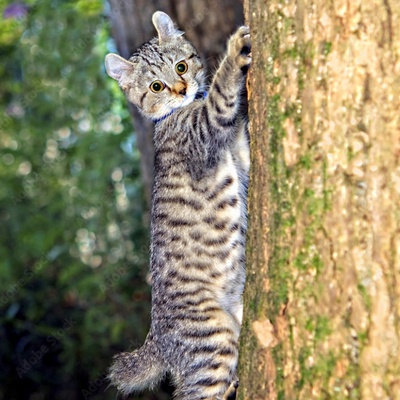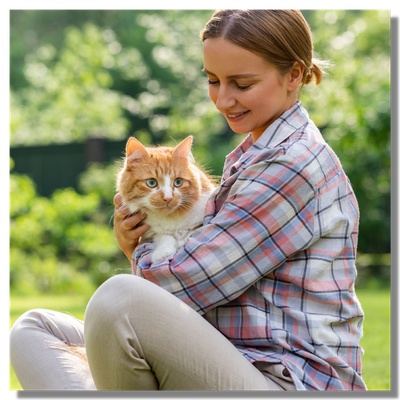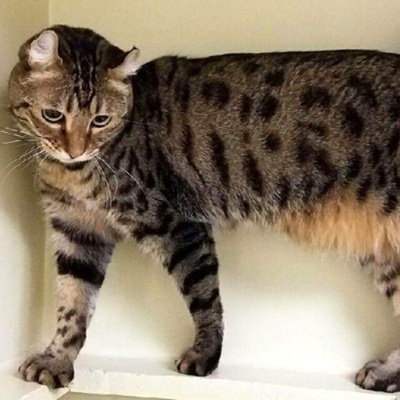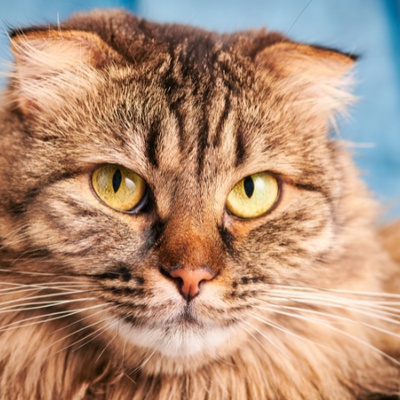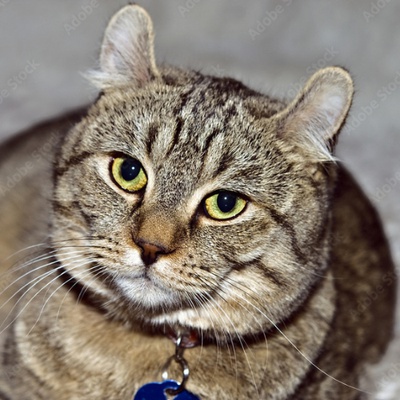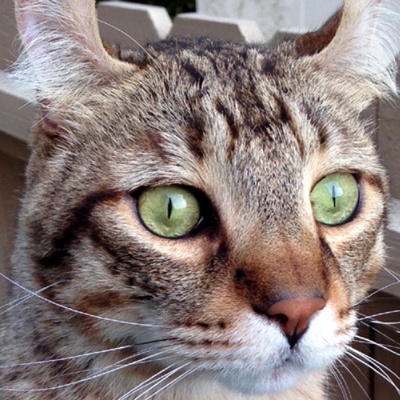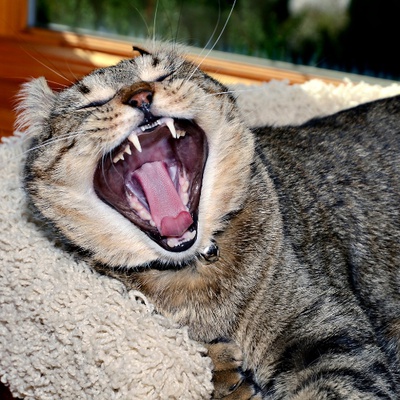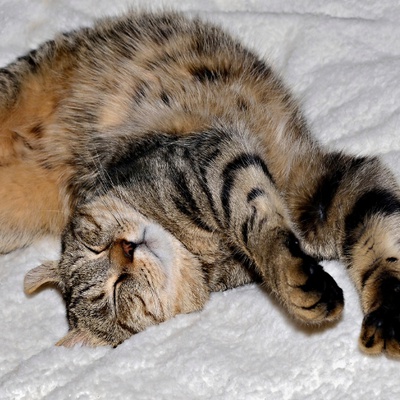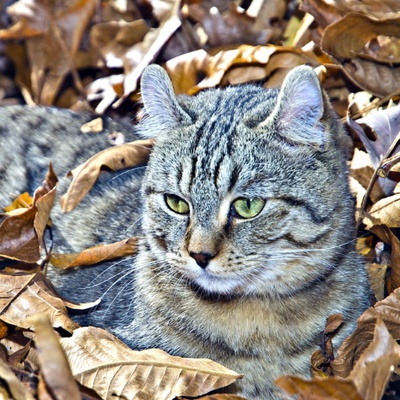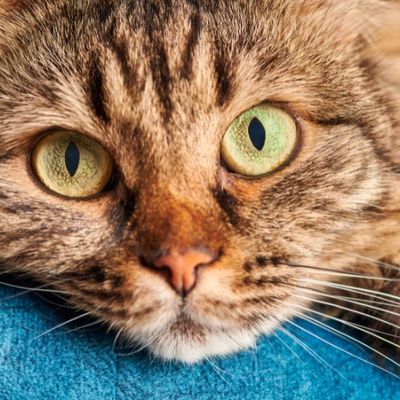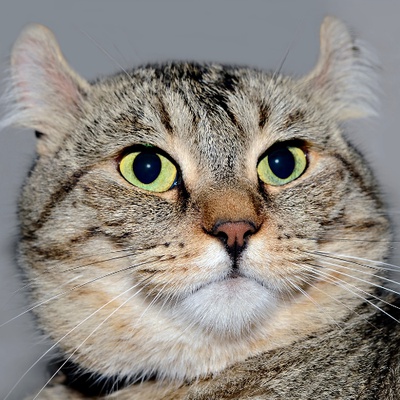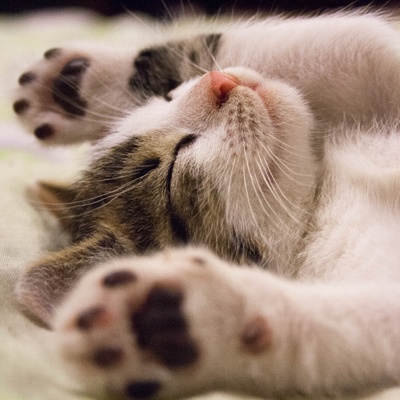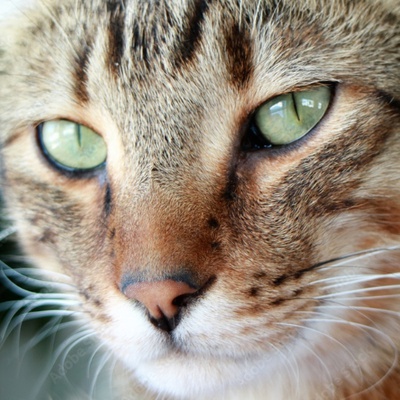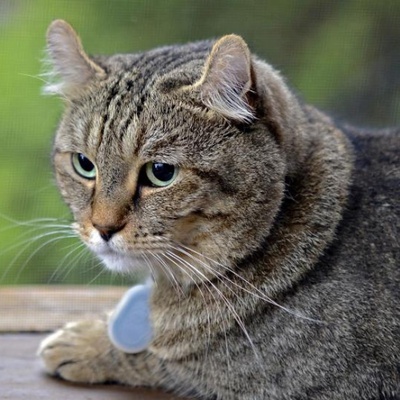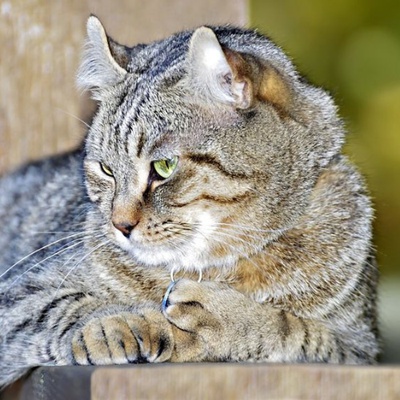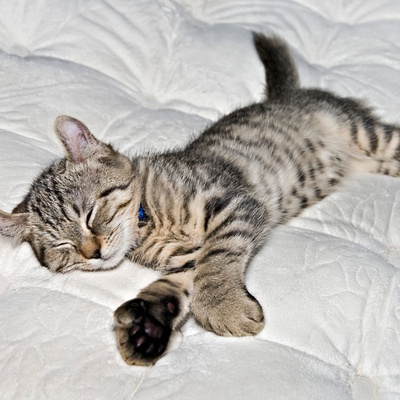Introducing the Highlander
Find out everything you need to know about the Highlander: its characteristics, its behaviour, where it lives, what it eats and how it is bred.
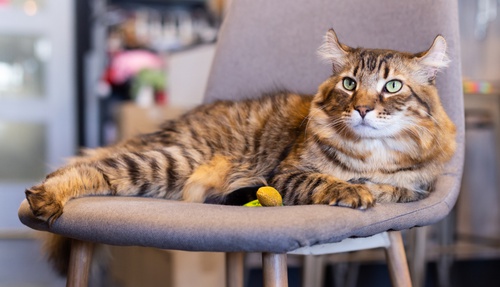
Find out everything you need to know about the Highlander: its characteristics, its behaviour, where it lives, what it eats and how it is bred.
The Highlander is a very unusual breed of cat! Originating from the United States in the 1990's, this is a very new breed of cat, born from a cross between the Desert Lynx and the Jungle Curl. This crossbreeding gives it a wild look, but at heart this is a very affectionate and loving cat. Very cuddly and playful, this canine cat would make anyone happy!
This section outlines the unique features of the Highlander breed of cat.
The Highlander is a strong, muscular cat. It is medium-sized, measuring up to 15,5 inches. It weighs between 11 and 20 pounds.
The Highlander has a short to medium length coat that is fairly thick. Regular brushing is recommended.
The Highlander is not a hypoallergenic cat breed. This breed is not recommended if you suffer from allergies.
The coat of the Highlander comes in a variety of colours: black, silver, blue, red, tabby, brown, etc.
The Highlander is an easy-going cat that will adapt to any lifestyle! It likes its home comforts but still needs to spend time outdoors.
These cats are the ultimate best friends! The Highlander is a sociable creature that gets along with anyone, humans and animals alike.
Highlander cats are often compared to dogs! It is a gentle, obedient and highly intelligent breed that will happily fetch you a ball.
Highlander cats are often compared to dogs! It is a gentle, obedient and highly intelligent breed that will happily fetch you a ball.
We can help you!
Every cat has its own character and specific needs. Making the right choice will ensure his well-being and yours.
Thanks to our quiz, you'll know which breed is right for you, depending on your lifestyle, expectations and many other criteria.
Don't wait any longer and take the quiz to find out the answer!
The Highlander has a wild and untamed appearance like its ancestor the Lynx.
The Highlander is a wild-looking cat, very much like the Lynx. It is a medium-sized breed, measuring between 10 inches and 15,5 inches at the withers.
Like all cats, the males are bigger than the females. A Highlander cat weighs between 11 pounds and 15 pounds with males weighing up to 22 pounds.
The Highlander has a long growth period. They reach their full size and weight at 3 years old.
The Highlander has quite a thick, medium-length coat. Its fur is the same length all over its body.
Unlike the Savannah, the Highlander does not have hypoallergenic fur. This means that if you are allergic to cats, it may not be the best pet for you.
This breed of cat has a coat that comes in an impressive variety of colours: black, white, grey, brown - a Highlander can be any colour. Its coat can also have spots, stripes or marbled markings.
Some breeders prefer leopard or colourpoint coats for their "big-cat" appearance.
Their permanent colour is fully developed by the time they stop growing, around their third birthday.
The Highlander has a unique, distinctive physical appearance. Its well-defined muscles and broad chest give it a big-cat gait, and its long head has a wide muzzle, a deep chin and big, expressive, oval eyes. Their eyes vary in colour and can be gold, blue or green. Its curled ears develop during the first year of its life. When Highlander kittens reach the age of 10 or 12 weeks, their ears stretch into a permanent curl.
They have big, long polydactyl paws. This phenomenon is widespread in Highlander cats, giving them more toes than most other cats!
This breed is also known for its noticeably short and thick tail, which is usually between 5 cm and 15 cm long.
It's important to take good care of your Highlander's coat to prevent tangles and stop dead hair and dirt from building up. Plus, this water-loving cat will actually enjoy an occasional bath!
Its curled ears call for special care. To keep earwax at bay and prevent potential infections, it's recommended to clean them regularly.
As a polydactyl cat the Highlander has more toes, which of course means more claws! It’s really important to keep these in good shape. You should think about getting some good nail clippers or scratching posts.
Despite its hardy appearance this is actually a very affectionate cat with a loving, sociable personality.
You won't find a sweeter cat than the Highlander! They are gentle, caring and very expressive. If they love you, they will show it with lots of cuddles. Their beautiful eyes and happy purring will make anyone fall in love with them!
Nonetheless, the Highlander is a very energetic and playful cat. They love to play and are always willing to play ball.
Last but not least, this a very sociable breed, enjoying the company of humans and animals alike. It is a patient cat and so perfectly suited to living in a family with children. It is a very trusting cat. When confronted with an unpleasant situation, it doesn't behave aggressively. It simply runs away to calm down elsewhere.
The Highlander is known for its dog-like nature. This breed of cat is particularly loyal and responsive to its owner.
When you come home, they'll show you how much they've missed you by throwing you a personal party! The Highlander also tends to be clingy and will follow you wherever you go.
The Highlander is an easy-going cat that adapts easily to any environment. It will happily live in the city, the country, a huge house or a tiny flat. The Highlander enjoys its home comforts. They need to feel safe and comfy, with space to play and relax.
The Highlander is a curious cat who loves to discover new things and explore unfamiliar places. Going outside is an absolute must for their development, and if you're worried about them running away or being stolen, you can use a GPS tracker. They are also very sociable cats who love to meet new people and hang out with their fellow cats. So, feel free to take your Highlander to the park, to events, or to visit friends and family with pets to help them make new friends!
There's a very good reason why the Highlander is known as the canine cat! Their exceptional intelligence and listening skills make them very obedient and compliant cats. They have a huge capacity for learning and a fantastic memory, allowing their owners to not just train them but even teach them a whole host of tricks!
Choosing a cat that matches your personality and lifestyle will ensure your well-being and his!
The Highlander is a sturdy cat and is generally very healthy.
The Highlander is a recent breed of cat, first introduced about 30 years ago. So far, no genetic predispositions have been identified.
It may suffer from urinary tract infections though and can develop idiopathic cystitis (inflammation of the bladder) or possibly chronic feline gingivo-stomatitis, an inflammatory condition of the gums and mouth.
Finally, to protect your Highlander from common diseases, you should take it to a vet for vaccinations against Feline infectious enteritis (FIE), Cat Flu, and Feline leukaemia virus (FeLV).
Its life expectancy is between 12 and 16 years.
The Highlander is a big cat with an appetite to match. It's important to keep an eye on not just the quality of their food, but also the quantity so they don't become overweight. Choose high-quality kibble based on natural ingredients. You can also give a little wet food as it has a high water content.
The Highlander takes an average of 3 years to grow to its full size. With this in mind, it's particularly important to feed them the right diet for their age and requirements. Those big strong muscles won't grow on their own! This carnivore will readily eat protein rich chicken, either raw or cooked.
The Highlander is a breed of cat that is particularly fond of water, and drinks much more than other cats. Remember to always provide them with fresh water.
The Highlander is an unusual cat breed and quite rare in France. They are quite expensive.
The Highlander is a breed of cat that was introduced in the United States about 30 years ago. It has only recently been brought to the UK and breeders here are still quite scarce.
If you want to adopt a Highlander, we recommend that you go to a reputable cattery or a professional breeder. You can go and meet the breeders and the cats, as well as seeing their environment and their living conditions.
From June 10, 2024 you must have your cat microchipped by the age of 20 weeks old and register its details in a relevant database such as Petlog or The Governing Council of the Cat Fancy (GCCF). This is a legal requirement in Britain, and failure to comply could result in a fine of
.
You should also check that both the kittens and the parents are up to date with their health checks. It's important to have the parents’ complete health history.
The Highlander is a sought-after and very unusual breed of cat. Depending on its parentage or appearance, the price of a kitten varies between
and
.
An adult Highlander is slightly cheaper. They usually cost between
and
.
Before you adopt a Highlander, you also need to take into account the price of regular care (worming, vaccinations, etc.) as well as the monthly cost of feeding and looking after your cat. To look after your cat properly you should budget for around
to
a year.
Taking on a pet is a big responsibility and it's a decision that needs to be given careful consideration. A cat like a Highlander will be with you for about fifteen years. You have to understand that to give them a happy and loving forever home!
Choosing a cat that matches your personality and lifestyle will ensure your well-being and his!
To access the most relevant information, suitable payment methods, and delivery in your region, please select the website corresponding to your country.
